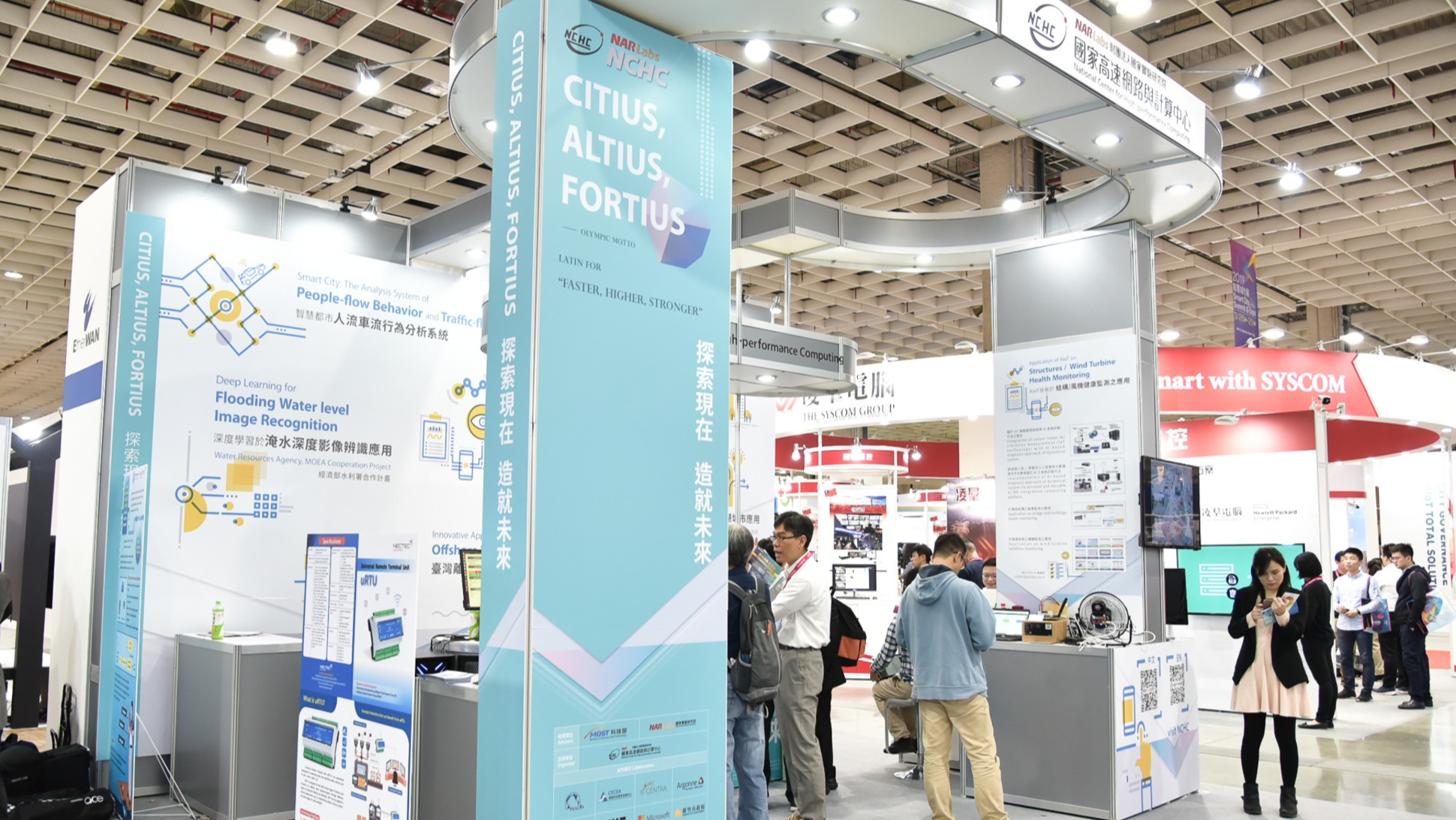The 2019 Smart City Summit & Expo (SCSE)
A report on technological development and application innovation on smart cities
The 2019 Smart City Summit & Expo was held from March 26 to 29, 2019, at Nangang Exhibition Center in Taipei, attracting 450 company exhibitors from 14 countries that offered more than 55 forums. It was estimated that 2,000 city administrators, heads of smart city projects, telecommunications companies representatives, and AI innovation experts would take part. The NCHC team showcased smart city technologies and applications in smart transportation, the environment disaster prevention, and renewable energy. Additionally, NCHC hosted open forums during the first three days where invited experts from all over the world talked about ”AI technology, application and innovation for digital cities” and shared their technological development and application innovation on smart cities. About 300 people from 35 countries participated in the NCHC forums.
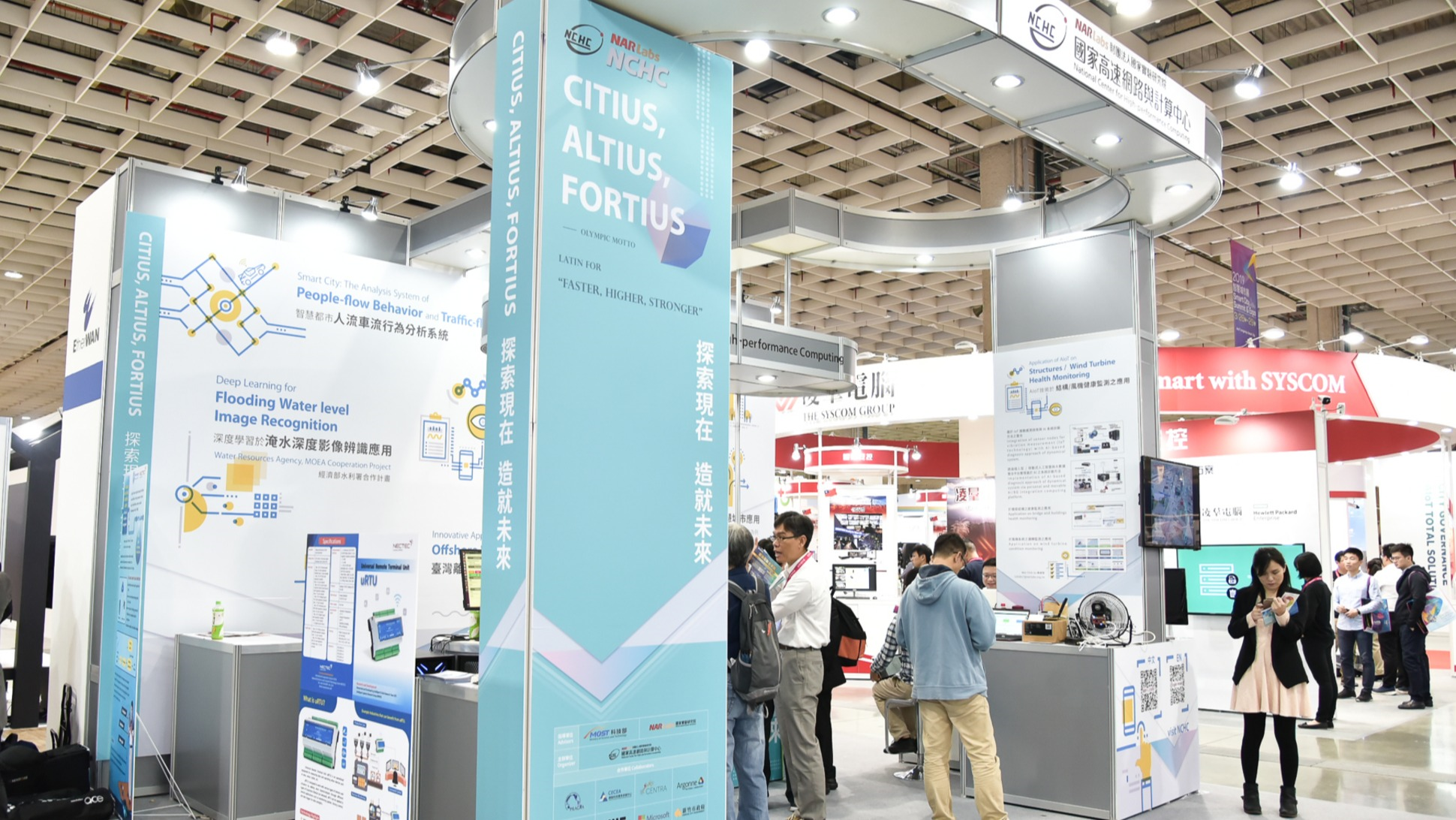 NCHC technology display booth in the 2019 Smart City Summit & Expo
NCHC technology display booth in the 2019 Smart City Summit & Expo
“AI is Data!” proclaimed Norman Peterson, director of government relationship at Argonne National Laboratory (ANL) at the start of the forum on March 26. Right off the bat, he unveiled the key to AI: AI ceases to exist without Big Data. Nowadays, ubiquitous monitors and sensors collect big data on movements of people, vehicles, air, weather, noise, light, and vibrations. Computing, deep learning, and analyses comb through the big data to yield information that may help governments effectively improve the quality of urban planning and improve solutions to issues in transportation, safety, energy, everyday living, and health.
Distinguished Professor Chen Yan-zhong at National Cheng Kung University showed the sparks of innovation and experiments at Shalun Smart Green Energy Science City in Tainan City, an epitome of experiments on intelligent and green buildings that Ministry of Science and Technology is sponsoring. It is hoped that this experiment could spawn a new industry and ecosystem of smart green energy that is based on low carbon and energy self sufficiency. Experts from the University of Laval in Canada, Microsoft AI Research Center, Korea Institute of Science and Technology Information (KISTI) talked about transportation and its applications in future cities. That day's forum also included informal discussions among forum speakers on network security and the leaking of personal information. They reminded individuals to be vigilant and pointed out that technological R&D in the private sector, government regulations, and awareness education are all indispensable keys.
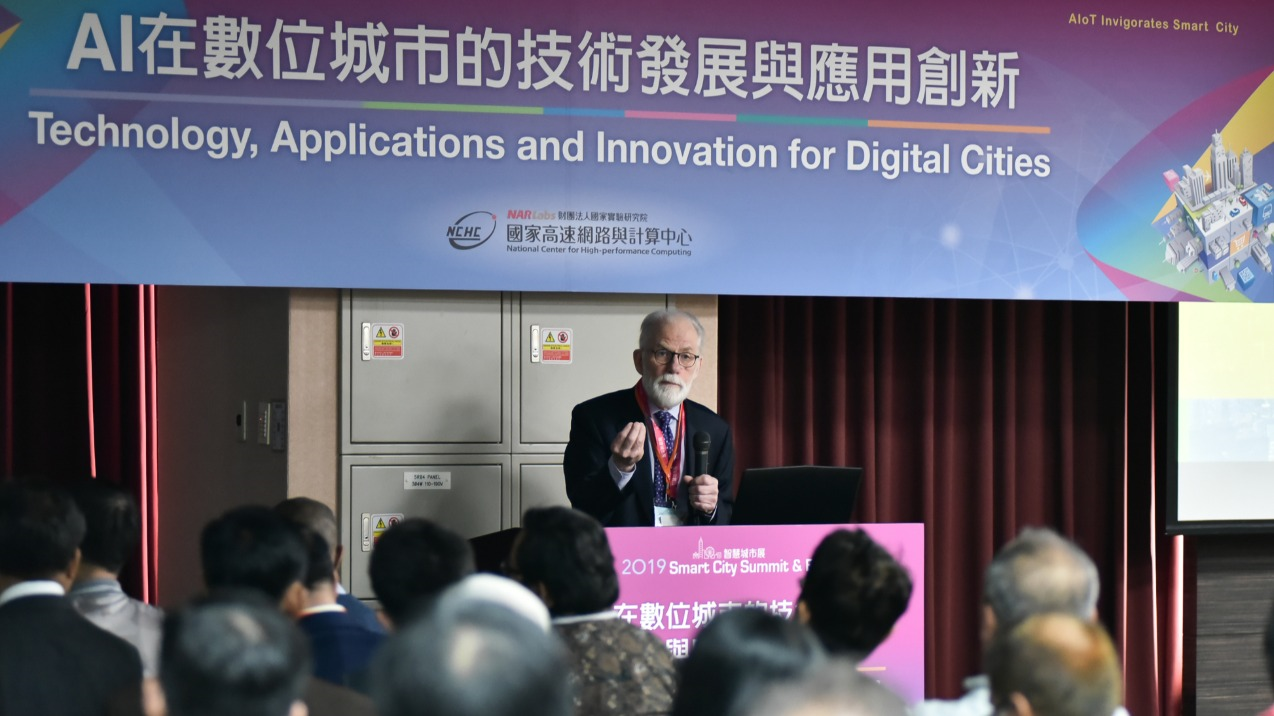
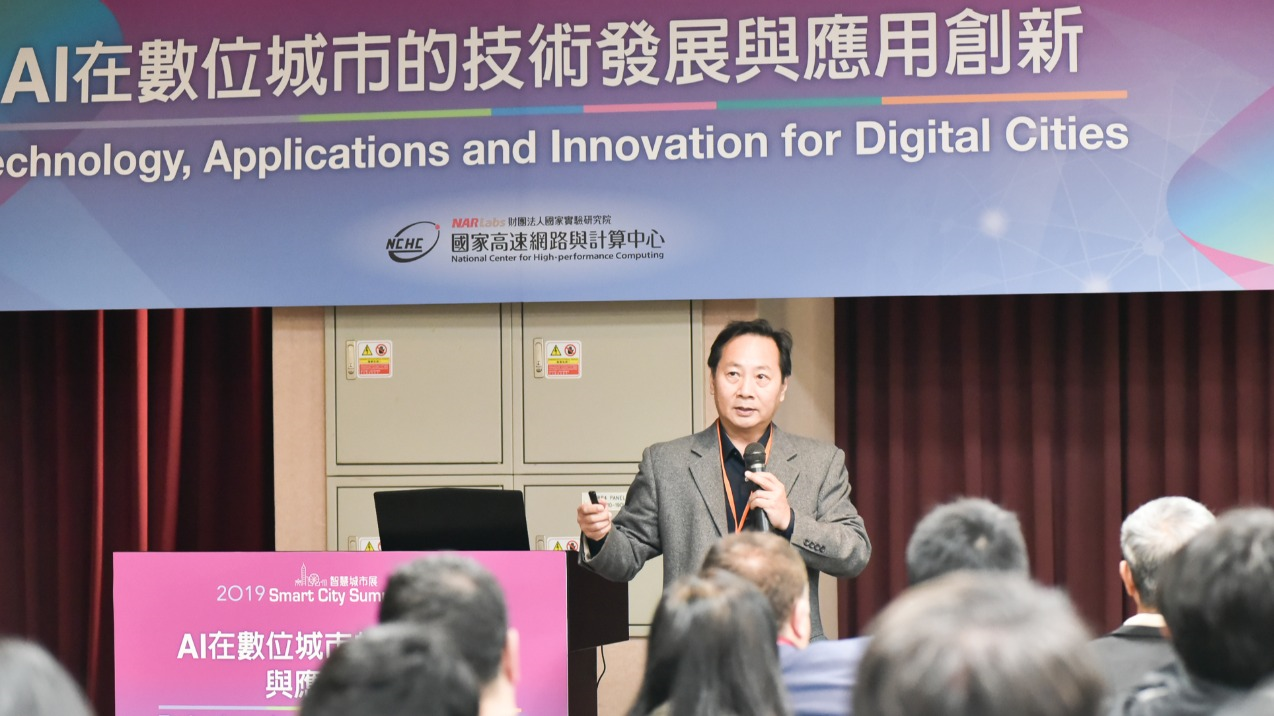
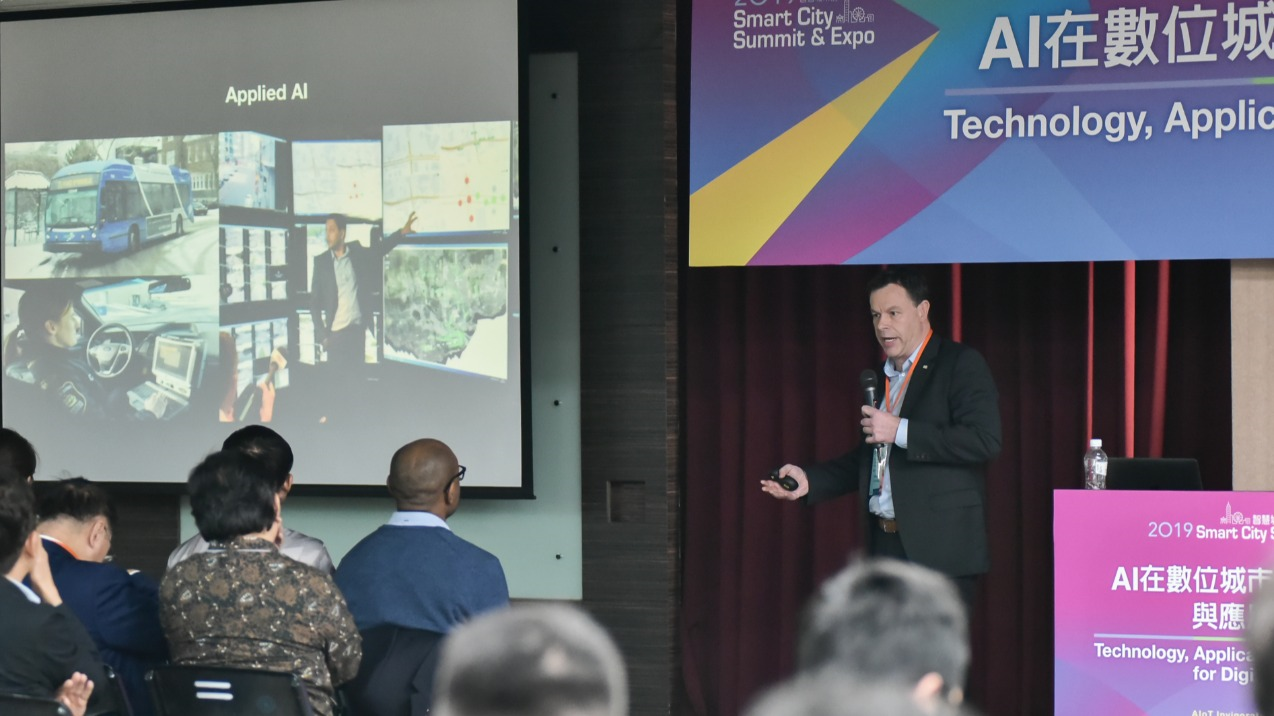
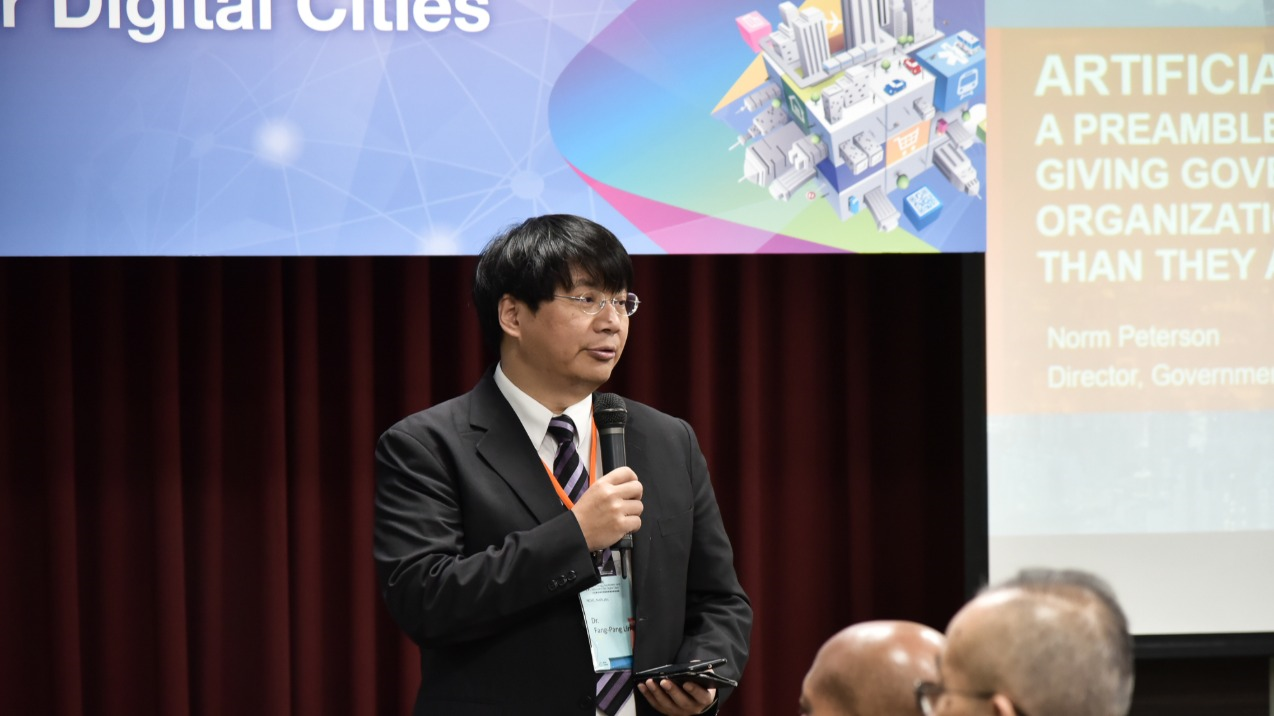
Invited guests from Asian countries talked about the state of smart city development in their own countries, which was another important facet of this forum. Speakers were representatives of universities or national laboratories from the Philippines, Indonesia, India, Australia, Thailand, and Malaysia. Research Fellow Yudho of the University of Indonesia gave a shining presentation, on the plan to build an energy-smart city in Jakarta, Indonesia. Since the plan's beginning in 2015, the city of Jakarta has funded many fundamental facilities and implemented many projects such as smart lighting, smart parking, waste management, and smart electricity as well as a project on the map of Jakarta that collects all sorts of data. Through this map, one can find a parking space, prices of land and prices of things, beds in hospitals, flood monitoring, and so on. On the other hand, Thailand's National Electronics and Computer Technology Center (NECTEC) deputy director, Alisa, shared with the audience the National smart city master plan. Thailand plans to build 100 smart cities in the nation within 20 years in order to improve the quality of life in city centers. Experiments are being conducted in three cities: Phuket, Chiang Mai, and Khon Kaen, first with Phuket slated to become a smart city by 2020.
In this summit, not only were leading cloud computing and IoT research organizations from developed nations (such as the United States, Korea, Canada) invited to attend to explore smart monitoring networks, Big Data analysis, and cloud computing and applications in cities, but Asia Pacific nations were also present to exchange knowledge about smart cities and the management and experiments in the field of smart cities being carried out in those countries. We believe that this summit is helpful in fostering the circle of beneficial interactions between Taiwan and Asia Pacific nations as well as future international collaborations in AI matters.
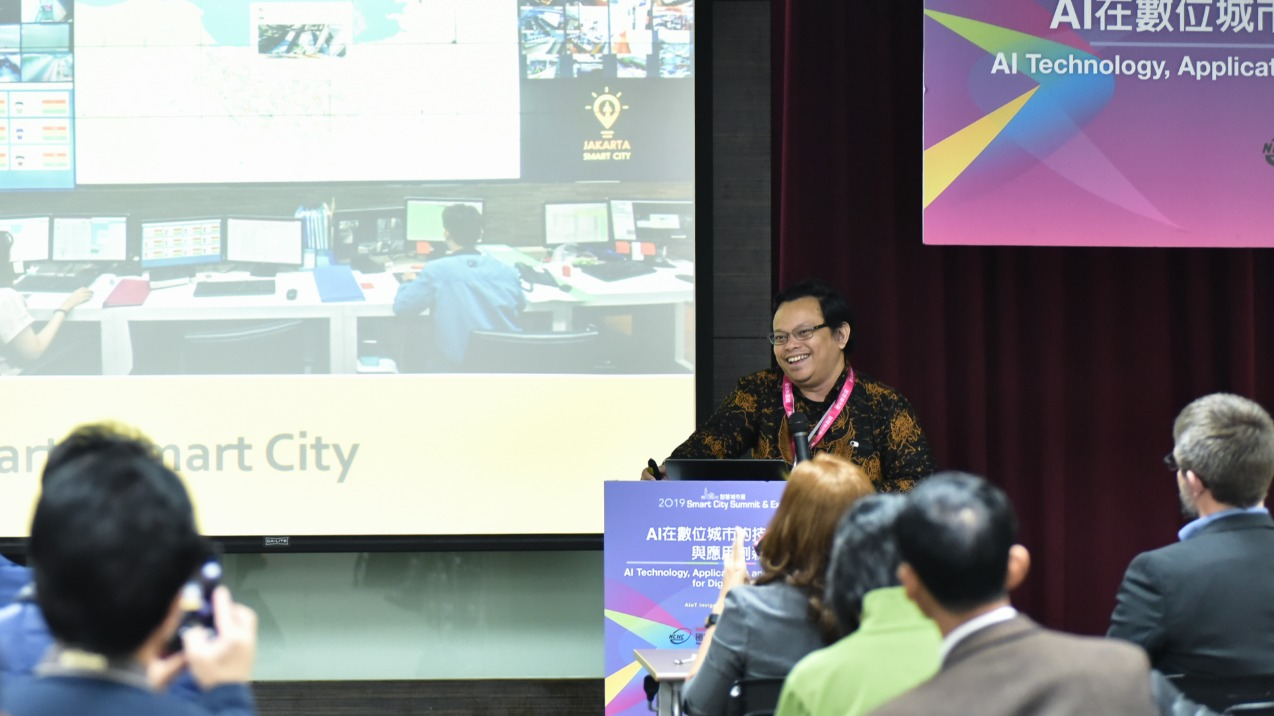
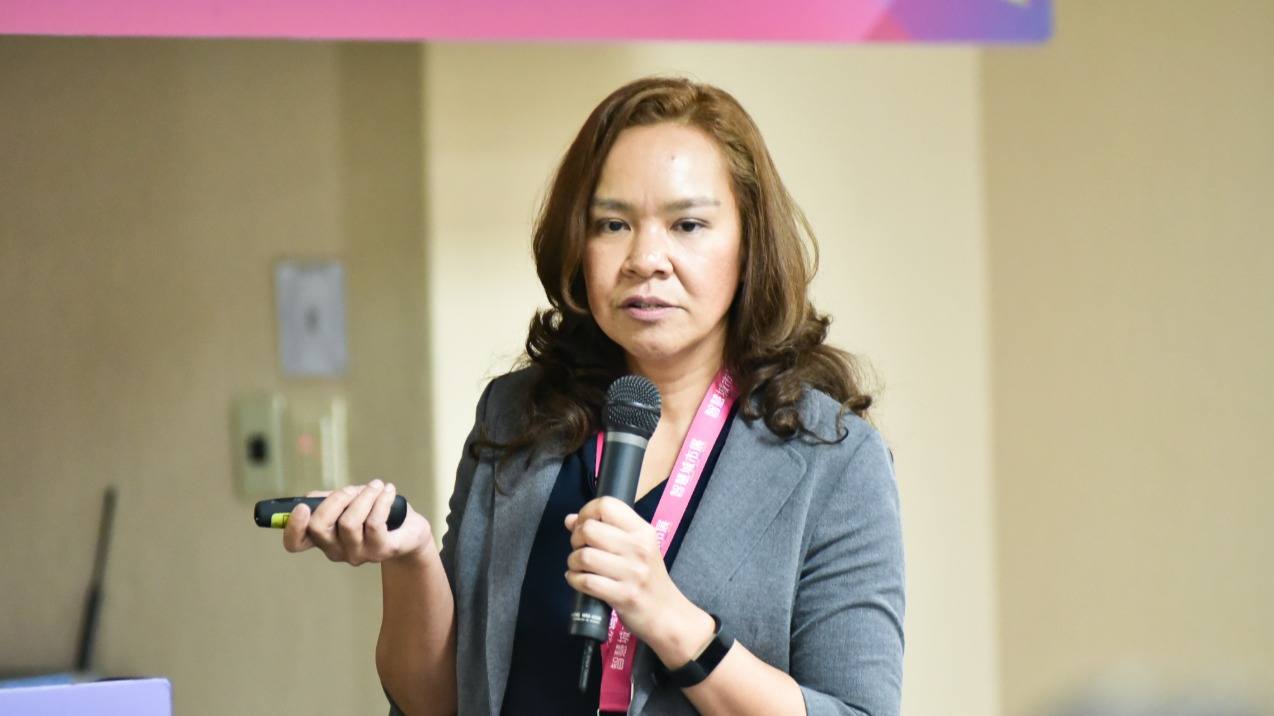
 國家高速網路與計算中心
國家高速網路與計算中心
